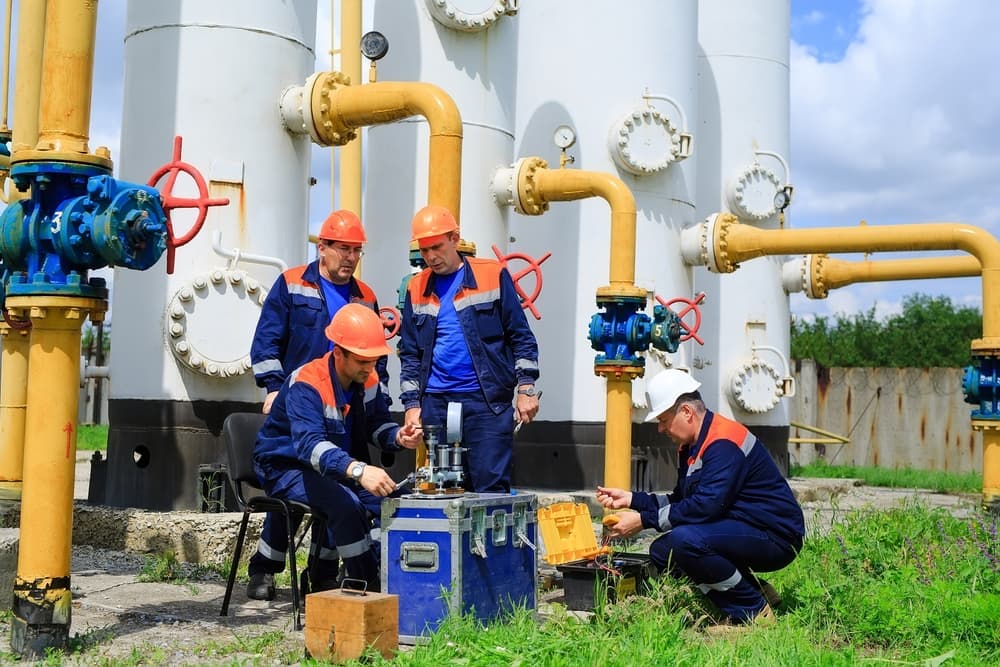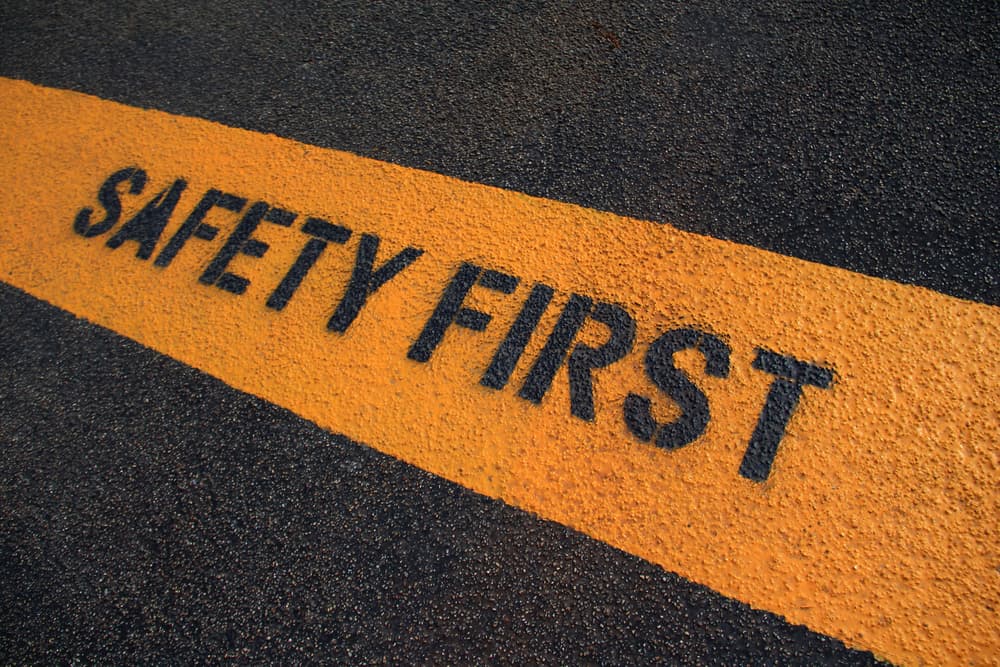Texas is a powerhouse of the US oil industry, contributing significantly to the nation’s energy production and economy. Under the veneer of this success, however, lies a stark reality—oilfield accidents. These incidents are not just statistics; they devastate the lives of workers and their families.
If you or a relative has had an accident in a Texas oilfield, you probably have many questions. There’s much to consider, including establishing the cause of the accident and the legal process to obtain compensation. Enlisting a San Antonio oil field injury lawyer can maximize your chances of winning the compensation you deserve from a Texas oilfield accident.
Understanding the Statistics
The U.S. Bureau of Labor Statistics reported 489 fatalities in the oil and gas extraction industries. Despite technological advancements and safety measures, the sector has persistent dangers. Even the best technology can’t safeguard against human error.
The most common accidents include equipment failure, falls from heights, explosions, exposure to hazardous gasses, and vehicle collisions. Accidents can happen for many reasons, including inadequate safety training, poor equipment maintenance, or non-compliance with safety protocols.
These accidents are often preventable. Although the oil and gas industry has considerably improved its safety measures and tightened its regulations, accidents still occur. There’s room for improvement in continuous safety training programs, equipment inspection, and enforcement of safety protocols.
Oilfield environments involve heavy machinery, hazardous substances, and extreme weather. In combination with the high-pressure nature of oil extraction operations, these significantly increase the odds of mishaps.
Language barriers, lack of adequate communication, long work hours leading to worker fatigue, and a rush to complete tasks can all exacerbate the risk of accidents. There’s no one way to prevent oilfield accidents.
The Consequences of Oilfield Accidents

Oilfield accidents are not isolated events. Their consequences ripple outward, impinging upon aspects of your life and beyond. They can cause serious physical injuries, some of which lead to permanent lifestyle detriments.
Workers often suffer from burns, fractures, spinal cord injuries, and traumatic brain injuries. These can lead to long-term disabilities, impairing your capacity to work and engage in daily activities. Even a minor injury could cause weeks off work.
There’s also the environmental factor. Oil spills and leaks resulting from these incidents can cause extensive damage to local ecosystems, distressing wildlife and polluting water sources.
This ecological damage can contribute to global climate change and take years to heal. Cleanup and environmental remediation significantly increase these accidents’ high human and economic costs.
Oilfield accidents have emotional and psychological consequences. Victims often suffer post-traumatic stress disorder (PTSD), anxiety, and depression, making the recovery process even more challenging.
These accidents can also create a culture of fear and stress among other workers, reducing productivity and morale. The aftershock can reach a victim’s family, causing stress and concern for their safety. Counseling and mental health support may help you.
An oilfield accident’s financial consequences can devastate you and your family. Medical bills can quickly accumulate, exacerbating your struggle with loss of income due to your incapacity to work.
Long-term care can cause financial strain for years. Working with a lawyer can open possibilities and maximize your chances of winning fair compensation.
The Overall Consequences for the Oil Industry and Economy
Oilfield accidents can have lasting consequences for the oil industry and the economy. High accident rates can lead to tighter company regulations, higher safety-measure costs, and investigation shutdowns. These factors can reduce productivity and oil output, debilitating the overall economy.
The oil industry’s reputation can suffer because of accidents. Repeating incidents can create a negative public image, deter potential investors, and reduce the industry’s growth prospects.
This reality can ripple through to the entire economy. The oil and gas sector is a critical contributor to the nation’s gross domestic product, providing numerous employment opportunities and aiding the stability of consumer-good prices.
In the face of such negativity, companies may need to invest in public relations campaigns to rebuild trust. Repeated accidents could lead to increased scrutiny from regulatory bodies, incurring further costs.
Legal Protections and Rights of Oilfield Workers
Understanding oilfield workers’ various legal protections and rights can be confusing, especially when you or a loved one has experienced a traumatic accident. Employees, including oilfield workers, have salient rights.
The law aims to ensure their safety, protect them from employer wrongdoing, and provide recourse when accidents occur. Your rights include a safe work environment, absence of fear and retaliation when reporting safety violations, and compensation for work-related injuries.
The Occupational Safety and Health Administration (OSHA) develops and enforces standards protecting oil and gas extraction workers. These standards cover regulations for the handling of harmful chemicals, the use of personal protective equipment (PPE), fall protection, emergency response procedures, and safety training requirements.
The Role of Employers in Ensuring Worker Safety

Employers play a critical role in ensuring the safety and well-being of their workers in the oil industry. This responsibility is a moral obligation and a legal requirement. Employers could be accountable for accidents and injuries on their worksite when they fail to meet these obligations.
The role of employers in safeguarding worker safety in this sector includes:
- Complying with OSHA regulations: Employers must adhere to OSHA regulations. These regulations cover many safety standards and practices, including hazard communication and fall protection. Compliance ensures workplaces are as safe as possible, reducing the risk of accidents and injuries.
- Providing safety equipment: Employers are responsible for providing workers with the necessary safety gear, such as PPE—helmets, gloves, goggles, and safety harnesses. Providing appropriate PPE is crucial for minimizing the potential for injury in hazardous environments.
- Maintaining equipment: Regular maintenance and inspection of machinery and equipment are essential. Employers must ensure all equipment is in good working condition to prevent malfunctions or failures that could lead to accidents. This approach significantly reduces workplace hazards.
- Providing safety training and education: Proper safety training is fundamental to worker safety. Employers must provide comprehensive training programs covering their industry’s hazards and risks. Regular safety drills and education sessions help workers respond to emergencies and avoid danger.
- Mitigating hazards: Identifying and mitigating hazards is an ongoing process. Employers must regularly assess their worksites to identify and address emerging safety concerns. This approach helps prevent accidents and injuries.
The legal landscape of oilfield worker protection can be complex but is comprehensive. It forms the foundation for fair treatment and compensation when accidents occur. If you or a loved one has suffered an oilfield accident, navigating this landscape may require you to seek the services of an experienced legal professional.
The Truth About Settlements
An oilfield accident can involve medical appointments, recovery efforts, and legal paperwork. Your lawyer will understand settlements, how they work, and how they can point you or your relative toward recovery.
Settlements are agreements the parties reach, with the party at fault (often the insurance company or the employer) agreeing to pay you for the damages you suffered. These include medical expenses, lost earnings, long-term care costs, and noneconomic factors, such as pain and suffering.
The settlement process begins with you or your lawyer filing a personal injury claim, which includes details about the accident, injuries, and expenses.
Each case is unique, and the damages vary widely, but it’s not uncommon for settlements to reach hundreds of thousands, perhaps millions, of dollars.
Determining the Size of the Settlement
Several factors determine the size of an oilfield accident settlement. These include the seriousness of the injuries, extent of medical treatment and rehabilitation, level of disability or disfigurement, amount of income loss, degree of pain and suffering, and likely future medical expenses.
The conduct of the employer or company can also feature, especially if evidence shows they violated safety protocols.
Claiming a settlement in an oilfield accident starts with filing a claim. Once the claim has undergone review and negotiations have begun, it may take some time for the parties to reach agreement.
The initial offer from the company or their insurance provider may not cover all your damages and long-term costs. A lawyer will understand the claims process, know what to expect, and can fight for a fair settlement.
The Role of Legal Representation in Oilfield Accidents
Navigating the aftermath of an oilfield accident can be challenging, especially when dealing with physical injuries and emotional trauma. A skilled lawyer understands your rights as an oilfield worker.
They can guide you through complex legal procedures and advocate for fair compensation. A lawyer can negotiate with insurance companies, corporations, and their legal teams to maximize your odds of receiving a settlement reflecting the damages and losses you or your loved one has suffered.
A lawyer can secure fair compensation for oilfield accident victims. They can calculate the full extent of the financial damage, including immediate medical costs, future treatment expenses, and lost earnings. They can build a strong case demonstrating the scope of your suffering and the responsible party’s negligence, significantly increasing the likelihood of a successful claim.
Choosing the Right Lawyer for an Oilfield Accident Case
Choosing a suitable lawyer for an oilfield accident case is crucial. Select someone with experience in oilfield accident cases, as they understand the nuances and prevalent issues within the industry.
Seek a lawyer with a track record of successful settlement negotiations and court cases in this field. Ensure they’re communicative, compassionate, and eager to advocate for your interests.
Besides offering legal advice and representation, lawyers can handle the situation more comfortably. They can manage all the paperwork, meet critical deadlines, and advise on dealing with insurance companies. They can also offer emotional support and link victims to resources, such as medical professionals or support groups.
The lawyer you choose can pursue justice, and the right choice can make the legal process more manageable.
Receive the Legal Representation You Deserve

Oilfield accidents can leave a profound mark, lowering your physical well-being and mental health and your family’s financial stability. They can cause PTSD and other concerns. The repercussions can be far-reaching, even to the oil industry and the economy.
When accidents happen, settlements offer a reprieve, providing financial assistance to meet medical expenses and compensate for lost income and pain and suffering. These settlements don’t fall into your lap: They require negotiations, an understanding of the legal process, assertive representation, and much time and energy.
The right lawyer can navigate the complex legal process, advocate for fair compensation, and provide support in managing the overwhelming aftermath of an oilfield accident. You don’t have to handle the complexities of a Texas oilfield accident alone. Contact a San Antonio personal injury attorney today if you or a relative suffered an oilfield accident.
